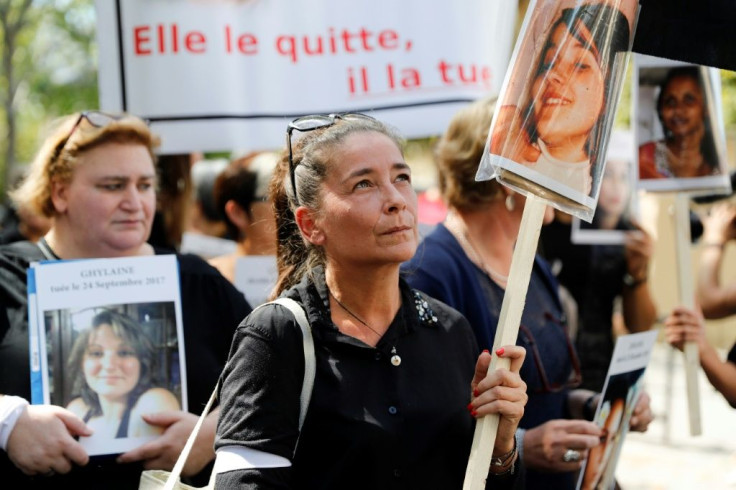France gets tough on domestic violence

The French government on Tuesday announced plans to create 1,000 new places in shelters for the victims of domestic violence as outrage grows over the number of women killed by a current or former partner.
France is one of the European countries with the highest number of such murders, according to EU figures from 2017 which put it second only to Germany.
Last year, 121 women were killed in France in these circumstances, equating to one death every three days. So far this year, at least 100 women have been killed by a current or former partner.
"For centuries, women have been buried under our indifference, denial, carelessness, age-old machismo and incapacity to look this horror in the face," Prime Minister Edouard Philippe said Tuesday, launching a major consultation on domestic violence grouping dozens of ministers, judges, police officers, victims' relatives and representatives of feminist groups.
Philippe kicked off the consultations by announcing plans for legislation allowing for the wide-scale use of electronic bracelets to prevent domestic violence offenders approaching their victims.
To mark the government's heightened action on the issue, President Emmanuel Macron on Tuesday visited the office of a domestic violence hotline in Paris and listened in to calls as they came in.
He heard the call of a woman who had decided to leave her abusive husband tell one of the hotline operators that the police were refusing to assist her.
"You're in the police station? You're in danger. your husband is at home. The police can accompany you," the operator, Elena, assured the caller.
However, an officer of the military police came on the line and said that he needed a judicial order to intervene.
The unheard President Macron shook his head and wrote notes to help the operator.
"It's the gendarme's job to protect her when the risk if evident," with or without any extra judicial permission, the note said.
However, the gendarme on the other end of the phone insisted it wasn't his place to intervene.
"Does that happen often?" Macron asked Elena.
"Oh yes, more and more frequently," came the reply.
Prime Minister Philippe said that under the bill, judges could also order an electronic tag for a person who has yet to be convicted of a crime but who is targeted by a restraining order.
Philippe also called for family court judges to be allowed to suspend the visitation rights of separated fathers who attack or threaten their ex and for women hospitalised for domestic violence to be allowed file a criminal complaint from their hospital bed.
But some feminist groups expressed disappointment at the government's failure to commit large sums of money to the fight against gender-based violence.
"No resources have been announced so frankly the announcements are disappointing," Caroline De Haas, founder of the group Osez Le Feminisme (Dare To Be Feminist), said.
© Copyright AFP 2024. All rights reserved.











